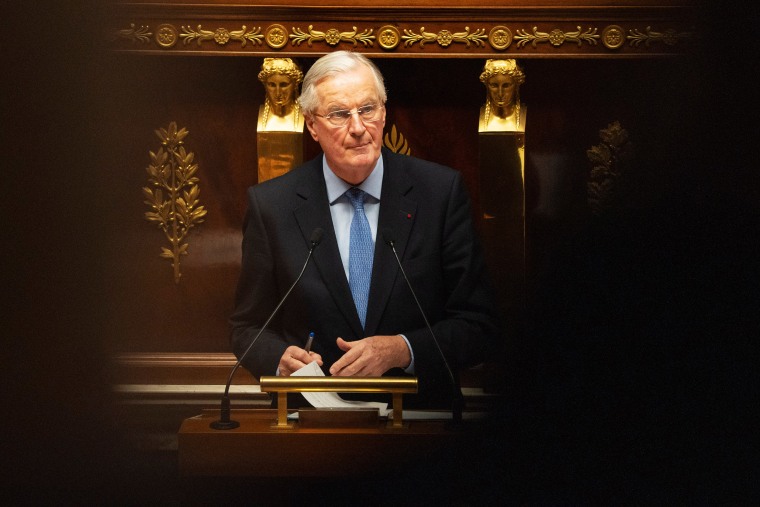France in political chaos as Paris gears up for the reopening of Notre Dame Cathedral
PARIS — As French President Emmanuel Macron prepared for a weekend of celebrations centered on the reopening of the Notre Dame Cathedral, the festivities were shadowed by calls for him to step down after Prime Minister Michel Barnier handed in his resignation on Thursday, following a no-confidence vote that collapsed his government.
Barnier’s fragile parliamentary coalition was the first in more than six decades to fall apart in France, the second-biggest economic power in the European Union. The vote against Barnier came just three months after Macron appointed him to the role, making him the shortest-serving French prime minister. Barnier will remain in a caretaker position until Macron appoints a new prime minister.
Macron was expected to address the nation on Thursday evening, with the latest development plunging the country into deeper political uncertainty.

The turn of events came just days before the grand reopening this weekend of the 860-year old Notre Dame Cathedral, a jewel in Paris’ skyline that was destroyed in a fire on April 15, 2019.
The widely anticipated reopening was seen as a major coup for Macron, who faced early skepticism over his vow to see the cathedral restored and reopened to the public by 2024.
Heads of state and dignitaries from around the world — including President-elect Donald Trump — are expected to flock to Paris for the reopening, which will be followed by a week of celebrations and ceremonies starting with a “reopening service” on Saturday. The visit will be Trump’s first overseas visit since winning the presidential election last month.
Macron took a televised tour of Notre-Dame a few days ago, where he said he hoped its reopening would bring a “shock of hope” to the world, according to French media.
Barnier’s government collapsed after far-left and far-right lawmakers in the National Assembly, France’s lower house of parliament, joined forces and voted overwhelmingly against him. A total of 331 lawmakers supported the no-confidence motion, dozens more than the 299 needed for it to pass.
The vote followed growing anger over Barnier’s efforts to push through a controversial 2025 budget by deploying a rarely used constitutional mechanism to circumvent parliamentary approval. The prime minister argued that the move, announced Monday, was necessary to ensure stability and address France’s ailing economy at a time of deep political division.
Currently, the National Assembly is made up of three major blocs: Macron’s centrist allies, the left-wing New Popular Front coalition and Marine Le Pen’s far-right National Rally.
While Macron’s position is not technically affected by Barnier’s resignation, his political future has become uncertain amid growing pressure for him to step down. And as he now faces the difficult task of finding a prime minister that a deeply divided parliament could approve, the chaotic fallout is widely seen as of Macron’s own making, after he called surprise snap elections in June that resulted in a fractious and increasingly dysfunctional government.





